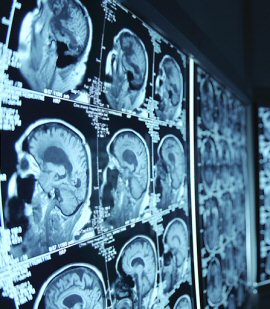
HIV infection or the treatments used to control it are prematurely aging the brain, researchers have found. The medicos, from Washington University School of Medicine in St. Louis and the University of California-San Diego, say that blood flow in the brains of HIV patients is reduced to levels normally seen in uninfected patients 15 to 20 years older.
"The graying of the AIDS patient community makes this infection's effects on the brain a significant source of concern," says study author Beau Ances, from Washington University. "Patients are surviving into their senior years, and a number of them are coming forward to express concerns about problems they're having with memory and other cognitive functions."
The study, appearing in The Journal of Infectious Diseases, notes that around 18 percent of all AIDS patients in the United States are more than 50 years old. This age group also has one of the highest rates of new infection. If current trends continue, by the year 2015, their number will grow to more than 50 percent of the overall patient population.
Prior studies of HIV infection found that it could lead to dementia in some patients, but quantifying the effects of HIV and aging in the brain has to-date been challenging. "We believe the virus crosses into the brain using infected immune cells," Ances says. "Once in the brain, HIV doesn't directly infect neurons but instead affects supporting cells that can release immune factors that harm neurons."
To investigate further, Ances and his colleagues turned to magnetic resonance imaging scanners and a new technique known as arterial spin labeling that allows precise, non-invasive blood flow measurement.
When individuals were resting in the scanner, brain blood flow values were significantly reduced in subjects with HIV compared to uninfected subjects. These reductions decreased brain blood flow to levels roughly equivalent to readings seen for uninfected individuals 15 to 20 years older.
When the researchers asked participants to perform a visual task, which normally triggers an increase in blood flow to particular regions of the brain involved in the task, participants with HIV had greater blood flow increases, suggesting the brain and its support systems had to work harder to get the task done. The team also found that HIV reduced brain blood flow even among young, recently infected patients.
"Brain blood flow levels decline naturally as we age, but HIV, the medications we use to control it or some combination of the two appear to be accelerating this process independent of aging," Ances said. "Does treatment significantly contribute to the harm that's being done?," he asks. "These are the kinds of issues we urgently need to start examining as the AIDS patient population ages."
Related:
HIV Treatment Holidays "A Bad Idea," Says New Study
Antioxidants May Prevent HIV Dementia
Source: Washington University School of Medicine in St. Louis





